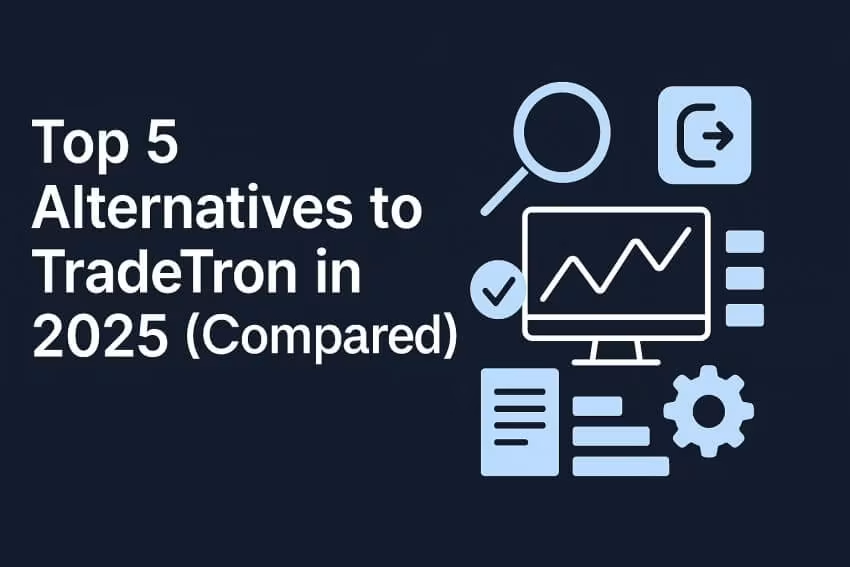Mistake #1: Neglecting Basic Understanding
Neglecting the basic understanding of options trading fundamentals can significantly impact trading decisions:
- Failing to comprehend crucial elements like strike prices, expiration dates, and various option types (calls, puts, etc.) can be confusing when evaluating and executing trades.
- Without a solid grasp of these basics, traders may make misguided choices, such as selecting inappropriate strike prices or misunderstanding the implications of different expiration dates.
- Ignorance of these fundamentals can expose traders to unnecessary risks or losses, as they might not fully comprehend the potential outcomes or risks associated with their chosen options.
- Lack of understanding may lead to missed opportunities to capitalise on potential market movements or failure to effectively manage positions due to inadequate comprehension of the options' mechanisms.
Many online platforms assist in acquainting you with the trading market before you commence actual trading, aiding in understanding its nuances and dynamics. For example, on uTrade Algos, you can employ precise historical data for backtesting your strategies, providing insight into their potential performance. This allows you to evaluate how your concepts might fare in the actual market before implementation.
Mistake #2: Overlooking Implied Volatility
Overlooking implied volatility is a significant mistake in call and put option trading, leading to potential drawbacks:
- Ignoring implied volatility misguides traders, affecting option pricing due to its direct correlation with future volatility expectations.
- Misinterpretation of values can lead to misjudgements in option valuations, potentially resulting in distorted buying or selling decisions.
- Failure to consider implied volatility exposes traders to unexpected market movements, affecting the profitability of their options positions.
- Incorrect assessments of implied volatility can hamper risk management strategies, leading to inadequate hedging and unexpected losses.
Mistake #3: Ignoring Risk Management
Neglecting risk management can lead to substantial losses as it leaves traders vulnerable to unexpected market movements or adverse outcomes.
- Failing to manage leverage levels can amplify risks. Excessive leverage increases exposure to market volatility, potentially magnifying losses beyond what traders can afford.
- Omitting stop-loss orders can be detrimental. Without these protective measures, traders might fail to limit potential losses, leading to substantial erosion of capital.
- Without predefined risk limits, traders might inadvertently accumulate positions that exceed their risk tolerance levels.
- Inadequate risk management compromises the sustainability of trading endeavours.
This is where uTrade Algos stands out for its robust risk management. It offers redefined algorithms known as uTrade Originals, crafted by industry experts with extensive experience and thorough research. These strategies have been designed to suit various market conditions, aiming to protect your surplus capital from the effects of inflation.
Mistake #4: Lack of Diversification
Failing to diversify can increase vulnerability.
- Ignoring diversification increases vulnerability to market movements. Overemphasis on a single stock or sector amplifies risk instead of hedging against it.
- Concentrating investments in one area amplifies risk without spreading it across multiple assets, potentially magnifying losses during adverse market conditions.
- Failing to diversify prevents risk hedging and may lead to imbalanced portfolios, impacting overall stability.
Mistake #5: Timing Errors in Execution
- Failing to execute trades at the right moment might lead to missed profitable opportunities or reduced gains.
- Failing to monitor and adapt to changing market conditions may result in missing potential trades that could have been lucrative.
- The absence of a strategic approach may lead to impulsive or premature exits from positions, potentially causing losses or missing out on favourable market movements.
- Rushed or poorly timed trade executions may result in suboptimal decisions, impacting overall profitability and portfolio growth.
Mistake #6: Emotional Decision Making
Emotions can cloud judgement.
- Emotional biases may cause traders to deviate from their predefined ‘trading calls and puts’ plans, resulting in impulsive actions or decisions based on fleeting sentiments rather than sound analysis.
- Emotionally driven decisions may lead to significant losses. Fear-driven decisions may result in premature exits from potentially profitable trades, while greed can cause holding onto losing positions longer than necessary.
- Inconsistencies due to emotional decisions can hinder the development of a consistent and disciplined trading approach, impacting long-term success.
Mistake #7: Neglecting Regular Analysis
Ignoring regular assessments of portfolio performance, market trends, and strategy adaptation may hinder opportunities for enhancing trading outcomes.
- Failing to review and analyse trading strategies may result in missing potential adjustments that could optimise performance.
- Without periodic evaluation, traders may fail to adapt strategies to evolving market scenarios.
- Neglecting analysis hampers learning from past trades.
Call and put option trading demands vigilance and strategic planning. Avoiding these common errors can pave the way for more informed and successful trading calls and puts. Remember, a well-informed and disciplined approach is key to navigating this intricate market landscape.












